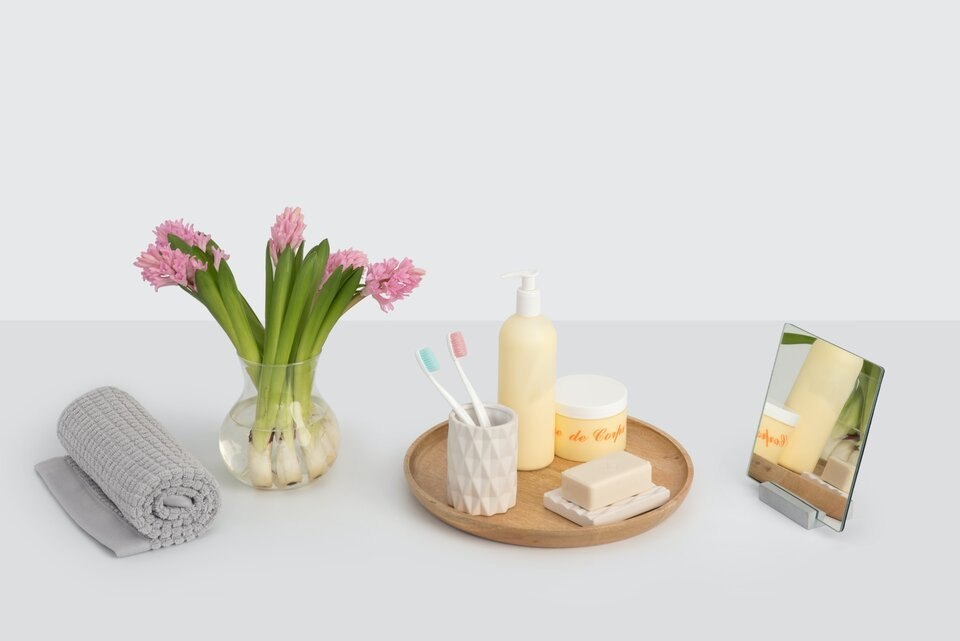
At least 40% of global consumers would drop eco-friendly beauty, healthcare items amid tight budgets
A recent YouGov survey conducted across 18 international markets polled consumers about which environmentally-friendly products they are most likely to cut spending on to tackle tight budgets. Recent pieces discussed how likely consumers are to slash spend on products like eco-friendly groceries and sustainable smartphones. In this piece, we look at how likely consumers are to reduce expenditure on eco-friendly healthcare and beauty products.
But before diving into results for that product category, let's get an overview of how it compares against other product categories. According to data from the survey results, when faced by tightened household budgets, nearly half (48%) of global consumers are likely to cut back spend on consumer electronics. A slightly lesser proportion of consumers (46%) would reduce sustainable apparel and shoes purchases and 45% would slash spend on sustainable or ethical smartphones.
Similarly, 45% of consumers would go easy with spending on beauty products. Environmentally-friendly healthcare products are right at the bottom of the list, showing that consumers are least likely (40%) to cut back spending on this category of items to manage their tight household budgets, compared to other product categories.
We further zero in on beauty and healthcare products to see how likely consumers are to cut back purchases in these two categories, by country.
More than half of the consumers in India and UAE will buy less of eco-friendly beauty items to handle inflation-induced budget restrictions.
Data from the survey results show us that consumers across all markets are significantly more likely than they are unlikely to cut back on eco-friendly beauty items to accommodate tight budgets.
Among all the markets covered, India is in the lead with nearly six in ten (57%) consumers saying they would buy less of eco-friendly beauty items, followed by UAE (53%) and Singapore (47%).
Budget squeezes would lead nearly two in five consumers in Sweden (38%) to slash spend on eco-friendly beauty products.
Compared to consumers in other markets, consumers in Great Britain (36%) and the US (30%) are least likely to reduce spend on beauty products to manage inflation-induced budget squeezes.
Consumers in India are most likely to reduce spend on healthcare products to accommodate tight budgets; consumers in the US are the least likely to do so
Shifting our focus to healthcare products, we see the numbers here are similar to the ones we saw in the beauty products category. For instance, India leads the chart here as well with just over three in five consumers (61%) saying they would reduce spending on eco-friendly healthcare items when faced by tightened household budgets.
More than half of the consumers in the UAE would follow suit (55%), followed by those in Singapore (40%). A third of consumers in Great Britain would toss eco-friendly healthcare products (33%) and so would three in ten consumers in Sweden (30%).
The US ranks at the bottom of the chart with 27% of consumers in this market saying they are likely to slash spend on eco-friendly healthcare products to manage tight household budgets.
Explore our living data - for free
Discover more retail content here
Want to run your own research? Run a survey now
Make smarter business decisions with better intelligence. Understand exactly what your audience is thinking by leveraging our panel of 20 million+ members. Speak with us today.
Methodology: YouGov Surveys: Serviced provide quick survey results from nationally representative or targeted audiences in multiple markets. The data is based on surveys of adults aged 18+ years in 18 markets with sample sizes varying between 511 and 1999 for each market. All surveys were conducted online in May 2023. Data from each market uses a nationally representative sample apart from Mexico and India, which use urban representative samples, and Indonesia and Hong Kong, which use online representative samples. Learn more about YouGov Surveys: Serviced.
Photo by Icons8 Team on Unsplash